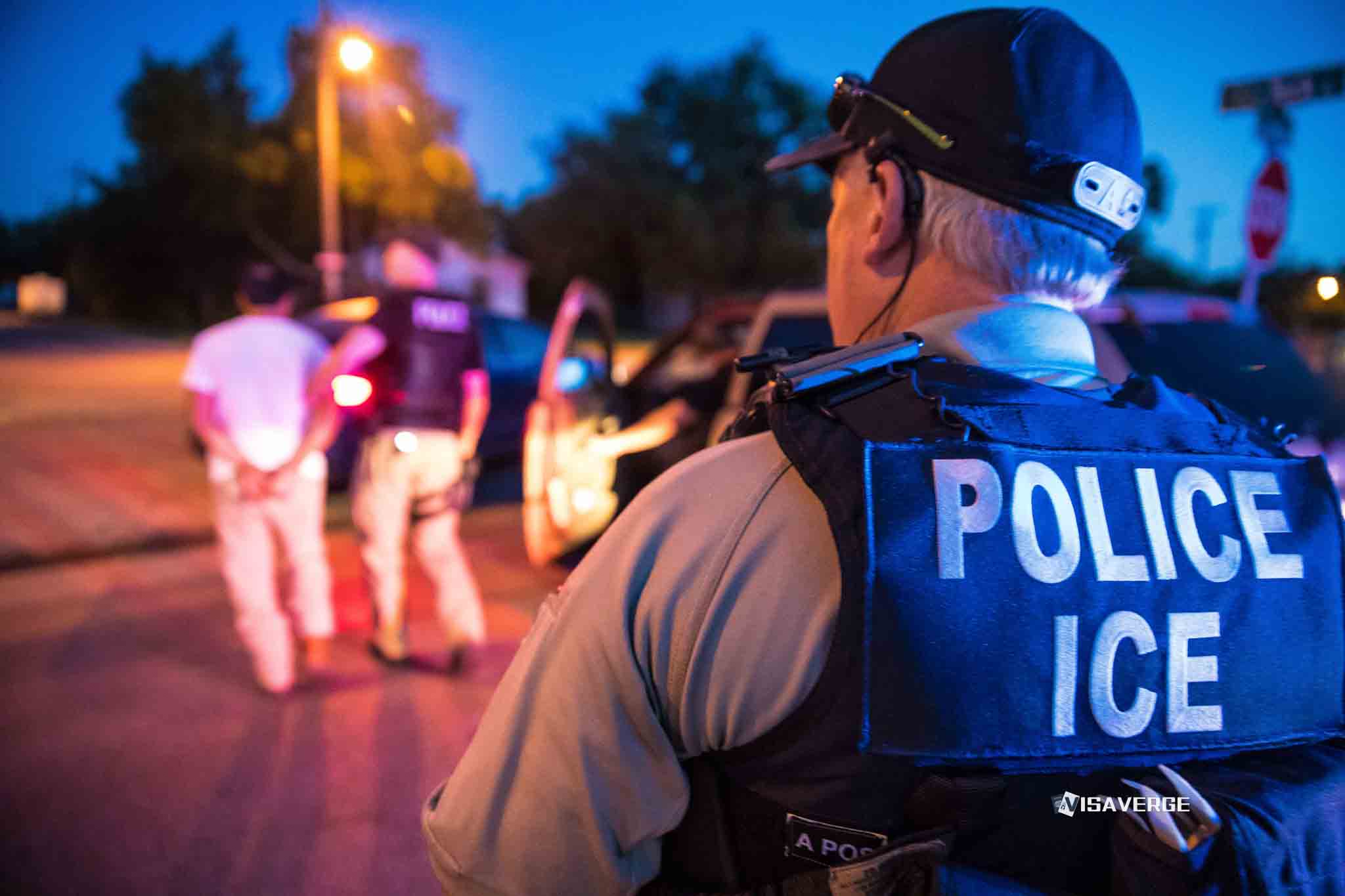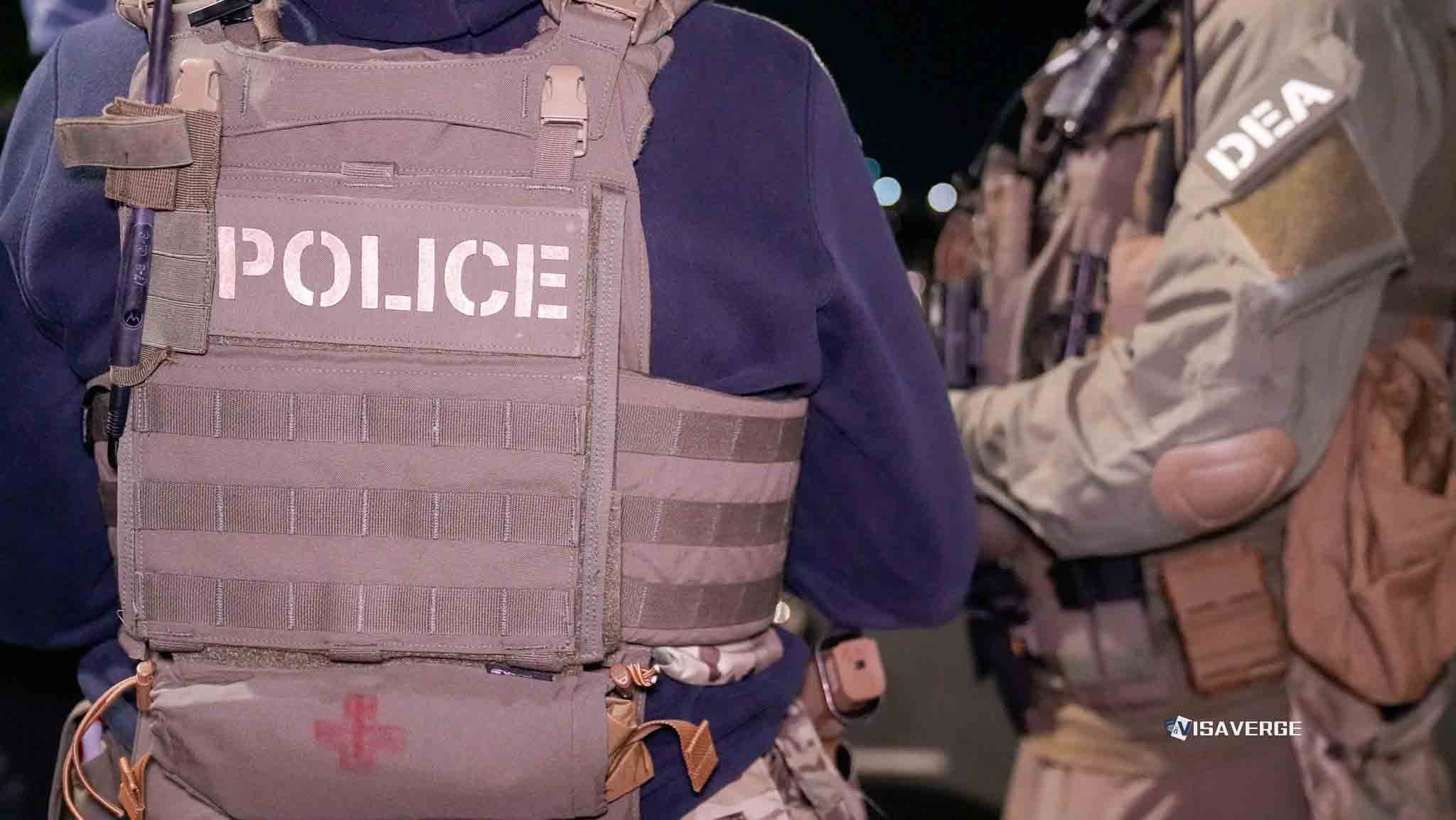(Legal and advocacy experts say the Omaha fraud case — centered on an alleged staged robbery and misuse of the U visa program — is already sending shockwaves through immigrant communities and law enforcement. On August 12, 2025, the FBI led coordinated raids on multiple Omaha-area hotels, arresting five people on charges that include labor trafficking, sex trafficking, money laundering, harboring undocumented immigrants, and U visa fraud. Officials warn the case could strain a vital victim‑protection tool even as they promise tougher fraud checks.)
Federal arrests and allegations

Authorities arrested five defendants — Kentakumar Chaudhari, Rashmi Ajit Samani, Amit Prahladbhai Chaudhari, Amit Babubhai Chaudhari, and Maheshkumar Chaudhari — and confirmed they remain in custody with further court appearances expected.
Investigators allege that in 2022 Chaudhari paid an associate $1,000 to stage a robbery of his wife, Rashmi Samani, to create a false crime-victim record intended to support a U visa application. The U visa allows undocumented victims of serious crimes who help law enforcement to apply for legal status in the United States.
During the raids, authorities say they rescued ten minors — some under age 12 — and seventeen adults from forced labor and exploitation at hotels the defendants managed.
The FBI has asked the public to share any tips about similar crimes in Nebraska. Federal agencies involved include:
- FBI Omaha
- U.S. Citizenship and Immigration Services (USCIS)
- Department of Homeland Security
- Local law enforcement
- U.S. Attorney’s Office, led by Lesley A. Woods
USCIS says it is working with investigators to verify documents and probe benefit fraud while stressing it aims to protect the integrity of the immigration system and maintain victim protections. A USCIS spokesperson, identified as Tragesser, criticized some local law enforcement for allegedly “rubber stamping” visa certifications, saying that practice “has given bad actors every incentive to fabricate victim stories.” That claim has prompted debate about how police should certify victim cooperation for U visa requests.
Pressure on a victim‑protection program
Advocates warn the Omaha fraud case may make police and prosecutors more cautious about signing certifications for genuine victims, particularly in communities already fearful of contact with authorities.
Christon MacTaggart of the Nebraska Coalition to End Sexual and Domestic Violence notes fraud is rare and says the U visa process is “remarkably inefficient,” involving extensive paperwork, police interviews, background checks, and long waitlists.
Immigration attorney Eric Cardenas called the alleged scheme “sickening,” arguing it clogs the system and delays relief for people who truly suffered harm. He pointed out that trafficking victims often may qualify for T visas, which are specifically designed for trafficking survivors.
Background: purpose and scrutiny
- The U visa was created by Congress in 2000 to encourage undocumented victims to report crimes and assist prosecutions without fear of deportation.
- Experts say most applications are legitimate and the process is rigorous, despite periodic scrutiny.
- The current debate centers on balancing strict screening to deter fraud with continued access to protections for real victims.
How the system works — and what might change
- U visa basics
- Applicants must show they suffered substantial physical or mental abuse from a qualifying crime and were helpful to law enforcement.
- A signed police certification is required to confirm the applicant’s cooperation.
- Heavy paperwork and long waits
- Advocates describe hundreds of pages of evidence, detailed personal statements, and repeated background checks.
- Backlogs mean people can wait years — sometimes a decade or more — for final decisions.
- Serious penalties for fraud
- Submitting false claims can result in criminal charges, ineligibility for future immigration benefits, and removal proceedings.
Some attorneys now urge potential applicants to review all options with trained counselors. People harmed by trafficking may be better served by a T visa, which requires proof of trafficking and cooperation with law enforcement and can address harms specific to forced labor or sex trafficking.
Main application forms
- Form I-918 (Petition for U Nonimmigrant Status): The principal U visa application, filed with evidence of the crime, harm, and cooperation. See the official USCIS page: https://www.uscis.gov/i-918
- Form I-918, Supplement B (U Nonimmigrant Status Certification): A law enforcement official signs this to confirm the victim’s helpfulness in an investigation or prosecution. Official page: https://www.uscis.gov/i-918supb
- Form I-914 (Application for T Nonimmigrant Status): For trafficking victims who meet the legal definition and assist authorities. Official page: https://www.uscis.gov/i-914
Attorneys also emphasize that the U visa program caps the number of visas issued each year, which deepens wait times. Any fraud — even if rare — can compound delays for families seeking safety and stability.
Potential impacts and responses
According to analysis by VisaVerge.com, media coverage of the FBI raids and staged robbery allegation may prompt some agencies to tighten internal reviews of police certifications. If that happens, advocates worry genuine victims will hesitate to report crimes, fearing their stories will be doubted or their cases delayed.
The concern includes not only approval rates, but whether survivors — domestic violence victims, robbery victims, or parents of child victims — feel safe telling police what happened.
USCIS says it is working to support law enforcement in rooting out fraud while preserving access for real victims. Experts believe both goals can be achieved through:
- Better oversight of certifications
- Stronger training for agencies
- Clear guidance so survivors know how to safely seek help
Immigration lawyers stress the human toll: people waiting for a U visa often keep low profiles, hold modest jobs if they can, and struggle to pay rent while cases move slowly. A single fake case can fuel suspicion; many such cases can close doors for thousands of survivors.
How to report tips and seek help
Anyone with information about related crimes is urged to contact the FBI Omaha field office.
To report suspected immigration benefit fraud or abuse, USCIS directs the public to its official USCIS Tip Form: https://www.uscis.gov/report-fraud/uscis-tip-form. Officials say additional reports could help locate more victims — including minors — and uncover related networks.
“The next chapter will test whether the system can punish fraud while still protecting real victims — the reason the U visa exists in the first place.”
Guidance for victims and advocates
Advocacy groups plan more outreach to explain when a U visa fits, when a T visa is better, and how to work with police safely. For victims seeking help now, advocates suggest three simple steps:
- Talk to a trusted local organization.
- Gather medical, court, or counseling records that document the harm.
- Ask an experienced attorney about the right path (U or T).
These steps won’t shorten waiting times, but they can strengthen applications and reduce mistakes that trigger requests for more evidence.
What’s next
Federal agencies have not announced new rules yet, but the case is expected to prompt a fresh review of how police sign U visa certifications and how agencies share data during investigations. The Omaha raids, the staged robbery allegation, and the rescue of children and adults from hotel worksites shocked the community — and the response will reveal whether authorities can both punish fraud and preserve protections for real victims.
This Article in a Nutshell
Shock from Omaha’s August 12, 2025 raids spotlights alleged U visa fraud and trafficking. Rescued victims, five arrests, and debate over police certifications may reshape protections for genuine victims. Advocates urge better oversight, training, and guidance so fraud deterrence won’t block already lengthy relief for trafficking survivors.













